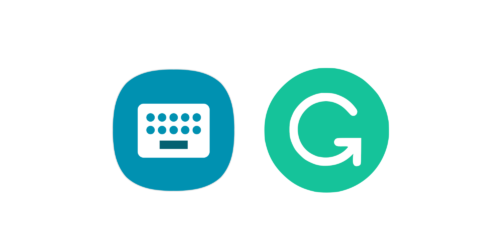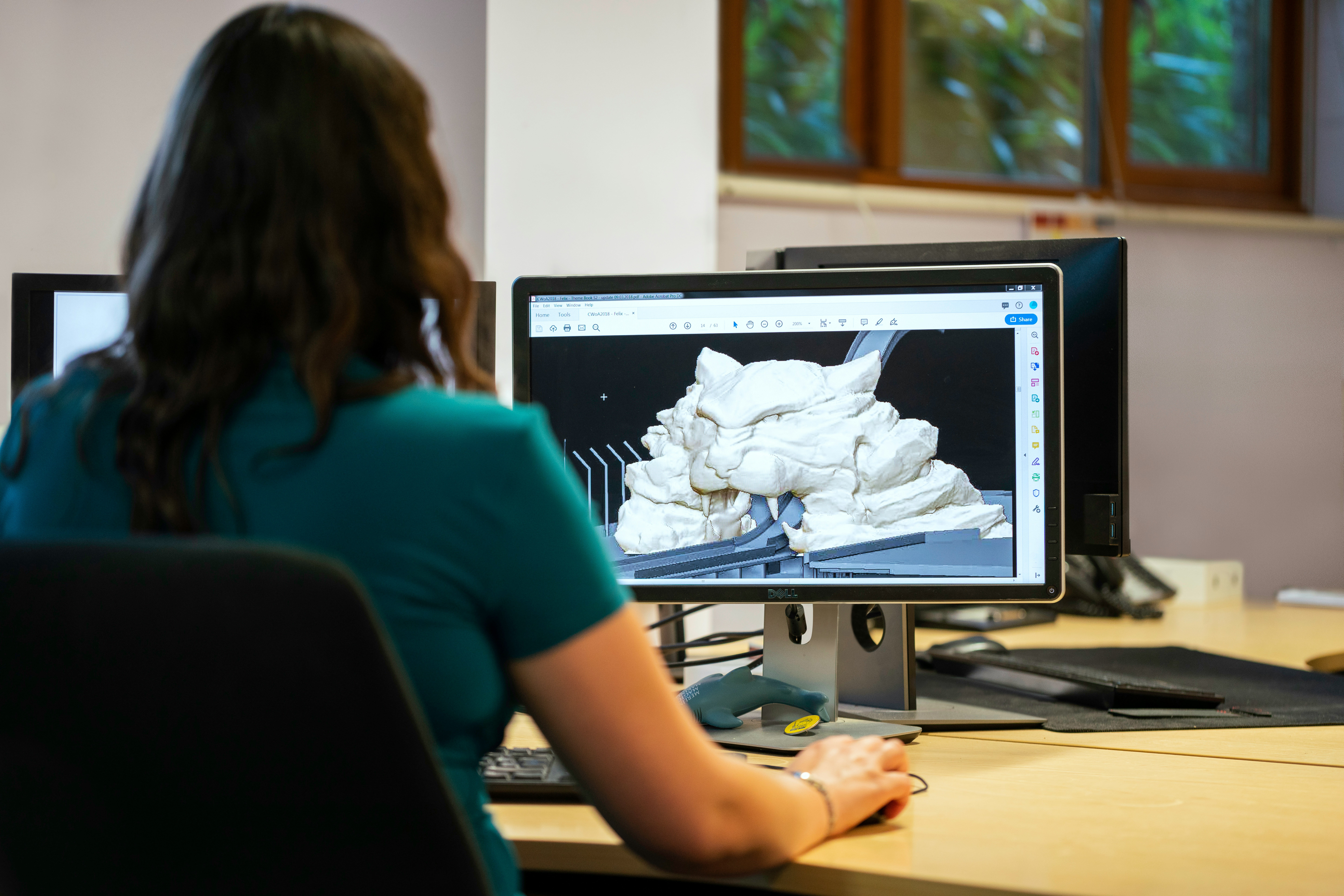Faculty Innovation 2022 – a Faculty Member’s Story 3
The theme of the 2022 Faculty Innovation Award was “inspiring students to engage meaningfully in assessment.” We met with Julia Beddoe and Polina Yakovleva, the award-winning team from the School of Interdisciplinary Studies, to ask them about their online writing feedback loop. Julia and Polina both teach Written Communication I, a writing class with students who are at a beginning level of English Language Proficiency. This is what they told us.
What was the opportunity that inspired you to innovate in the first place?
I think it was going online during the pandemic. For the Writing I course, we had a physical writing folder that was paper based. So, we had to make a switch to an online writing project just so that it was doable.
In addition, our students present a very specific demographic; not only are they learning the language, many of them are also learning the technology. So, we had to give a lot of support then and still do for transitioning online and studying in this post-pandemic world. To support our students and build their tech skills, we needed a regular routine that we did again and again so that it wasn’t a new routine for each assignment. We also needed to be really intentional in helping students find their feedback. So essentially, how do we help them create a folder now that there is no physical folder, and how do we help them navigate technology when their language skills are such that it is not easy to explain what to do. And lastly how do we ensure that students know where to find their feedback and how to use that feedback. This idea of feedback and iterative writing is so new for many of them, so we wanted to make it a very concrete and easy step-by-step process to really ensure that we would reach the most students.
What was your goal in this innovation?
The goal was to get the students to read our feedback. Because, unfortunately, that’s not always the case, even back when we were in person. Many students didn’t necessarily see the feedback or read the feedback closely, and they would just ask us for advice after class. When we were online, it was no longer as easy to do that, and booking an appointment required technical skills. But it also became more distant and formal, which prevented a lot of students from reaching out. So, the goal was making sure that there was that connection between giving feedback, students reading the feedback, and then applying that feedback in their writing – we call that a feedback loop – and helping students become more autonomous in their studying.
What was the action?
We looked at reducing the number of assigned paragraphs to a manageable amount, and we created this feedback loop. We had been assigning up to 9 practice paragraphs; we decided to bring it down to 4. It’s a common practice to do a second draft for writing classes, for students to use feedback to make corrections. What we did was add a short questionnaire for questions that ensured that students were looking at their feedback. So, we asked them, “what did you do well,” so they could celebrate their achievements. We asked, “what mistakes did you see the most often,” so they could really focus in on those. We ask them to come up with a plan for how they would study those mistakes, and for the second draft, we asked them to compare their writing with the earlier draft. “What is better this time?” So, the questionnaires are always advancing that idea of looking back and moving forward.
Did they use the questionnaires?
Yes, and we got some really great feedback from students. They would say, “Now I can write a paragraph,” or “I’m remembering my punctuation,” and just really celebrating. And even some students say, “I didn’t think that I learned so much.” But looking back at earlier work, it is really solidified for them. They see growth over time.
How would you describe the impact of this innovation?
I think that it closes that feedback loop. Students know how to find the feedback, and they know how to use the feedback. Now I hope that they take these skills outside of our class, and they reflect on the common mistakes that they make in other classes and come up with an actionable plan. And that they reflect on their growth, because at the end of the day we’re trying to instill good study habits and good study practices in students who maybe haven’t had any formal education in 20 years. Maybe their education was so completely different from what we are asking them to do here in North America. So just supporting them through these adjustments is very important.
Also, reflections are a really common assessment tool college wide, and this is new for many of our students. So, it’s making sure that they’re getting used to this reflection piece before they get into their main programs.
Have you applied this innovation in an in-person setting?
One of us teaches this course in person, and we have continued to do that whole feedback and reflection piece online. It proved to be a stronger option in the end than hauling around these big paper files. There is another advantage, too. In the past there was a segment of students who would leave all the corrections, even the ones from Week 1 and 2, till right at the end of the semester; whereas, with this process, because it’s more cyclical, they are regularly reflecting. And you know the learning is going to go deeper then.
The semester is scheduled so they write a practice paragraph, we give them the feedback, and then they have a whole week to submit their feedback reflection. We design the practice paragraph due date to be right before the next writing assignment. They are assigned to write a similar type of paragraph, so they can really apply the skills they’ve developed. So, the feedback really shows you what you need to focus on, and potentially you do so much better on the actual assignment. You apply that learning that you did through this reflection. So, you’re seeing it in action.
What motivated you to submit your innovation?
I think it’s just exciting that this award started up. It is the first time, and I think it’s a great opportunity for all of us. I think, in the pandemic a lot of teachers really came out for each other and supported each other in this confusing time of transition. So I think it was very apt to have an award on a college level, and to really share how we are dealing with all of this, and how we are adapting. And it was fun to do it as a team, too.
Sharing with Colleagues
Julia and Polina have shared a sample of the self-reflections that have helped their beginning writing students gain meaning from the writing process. We hope it will inspire you in your own assessment journey.
Faculty Innovation Award for 2023
Would you like to make a submission for the next Faculty Innovation Award? Check out it out here.



